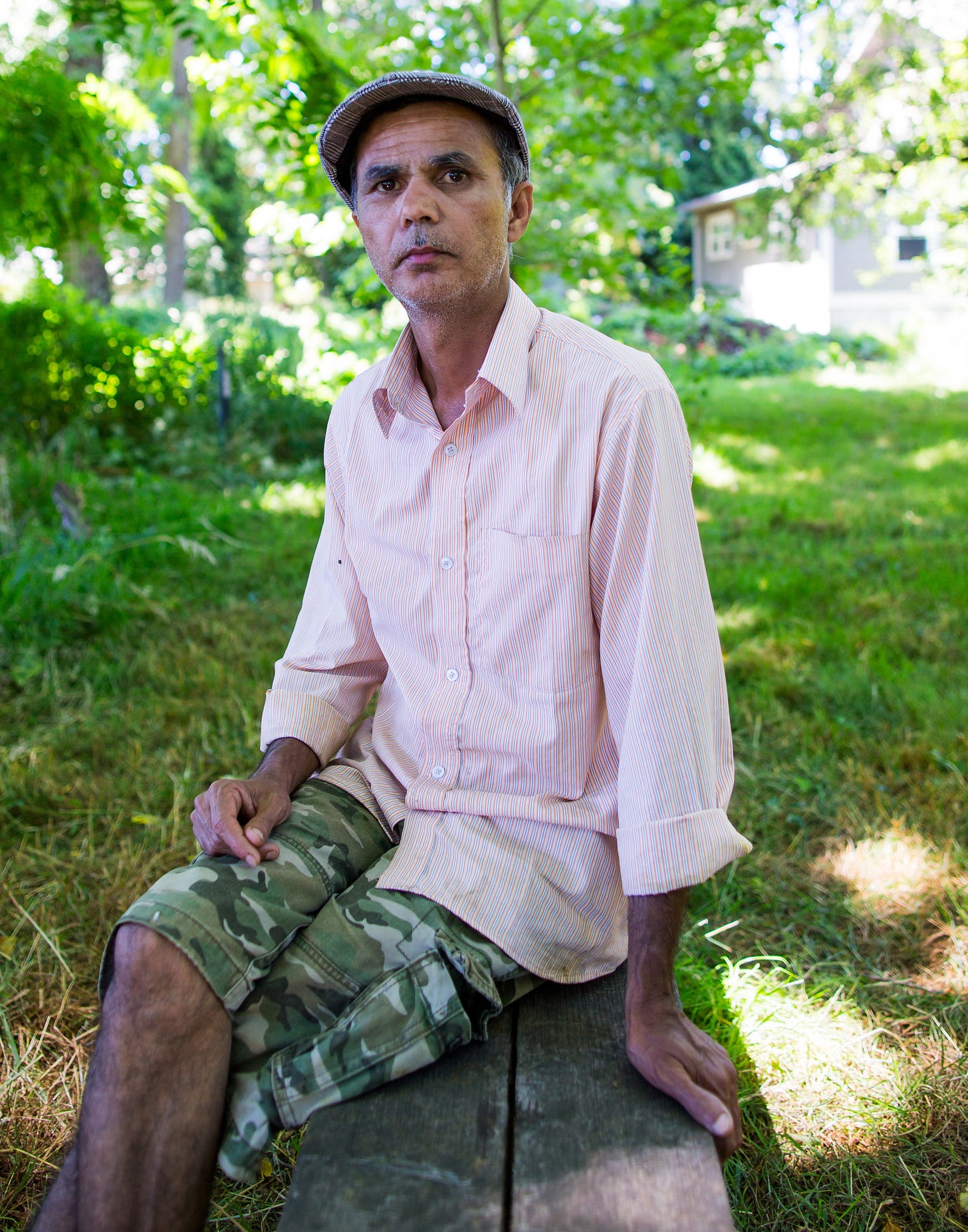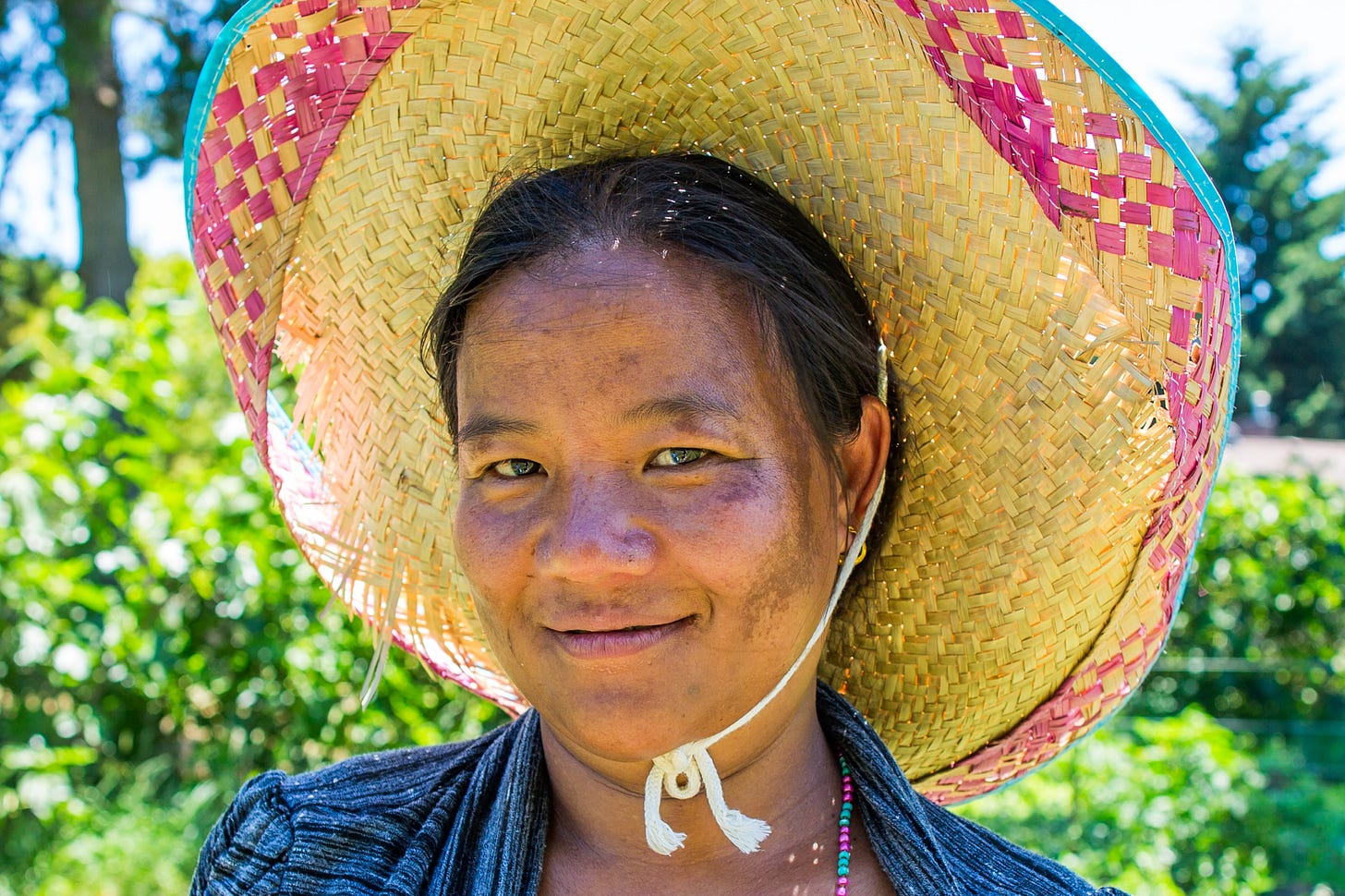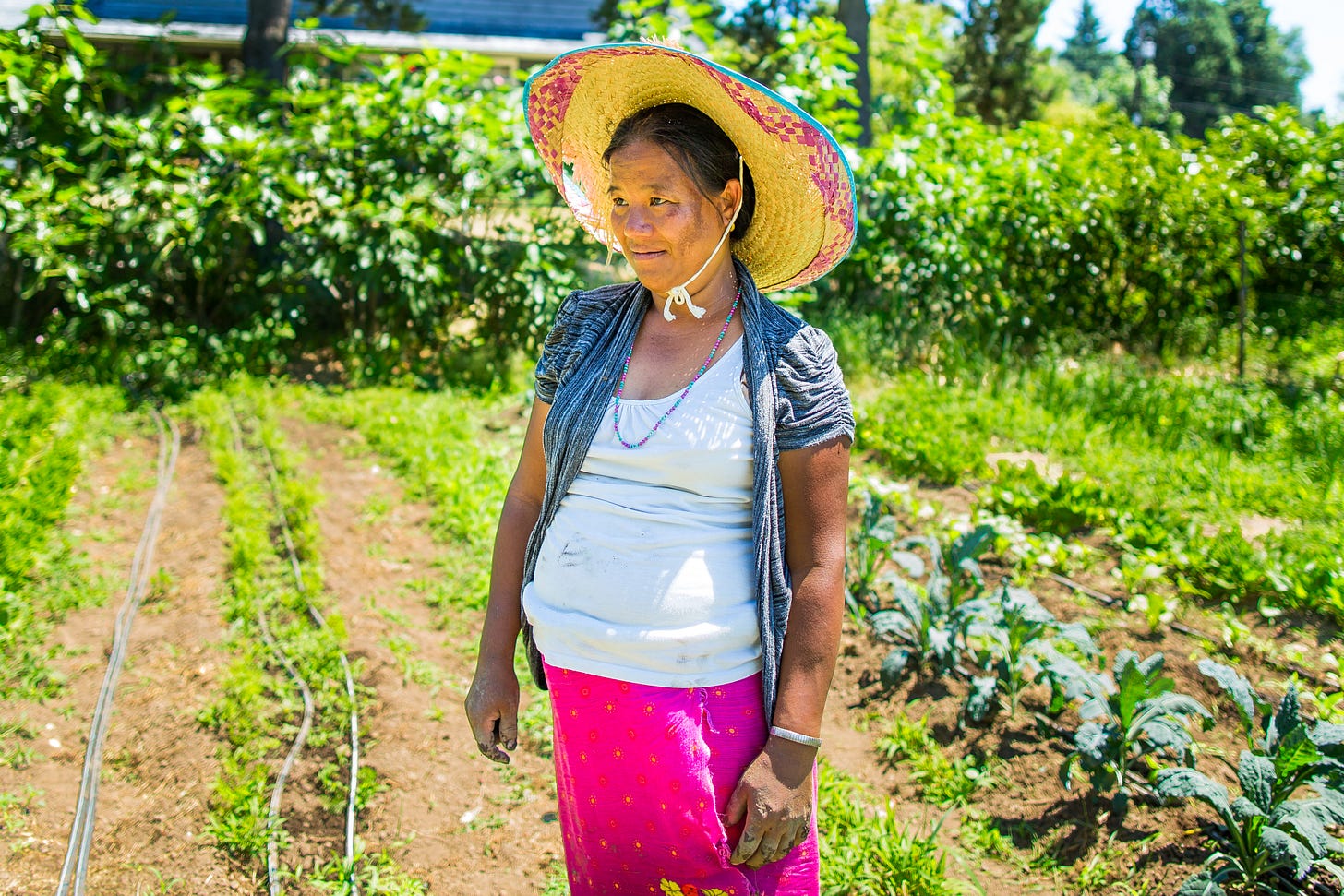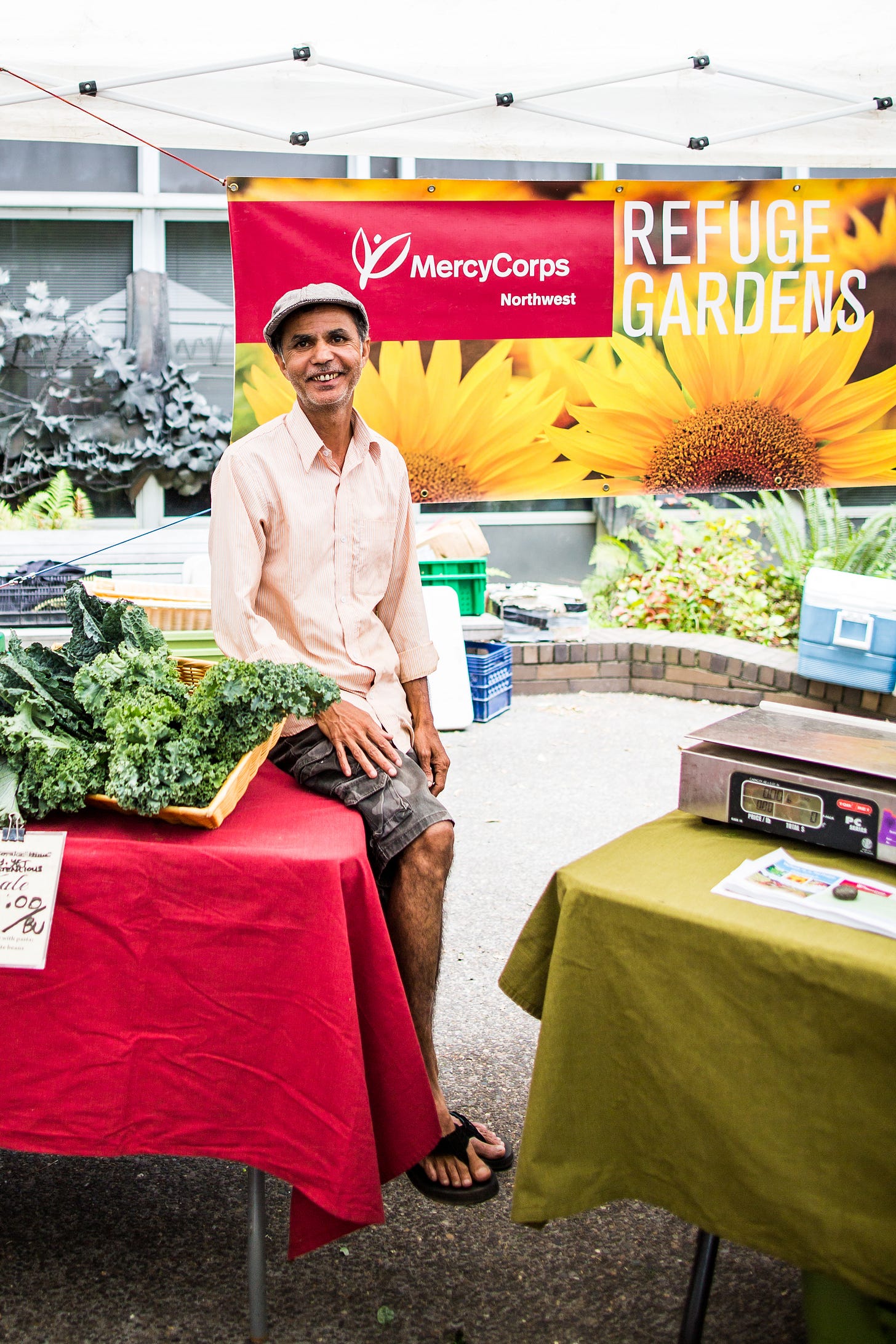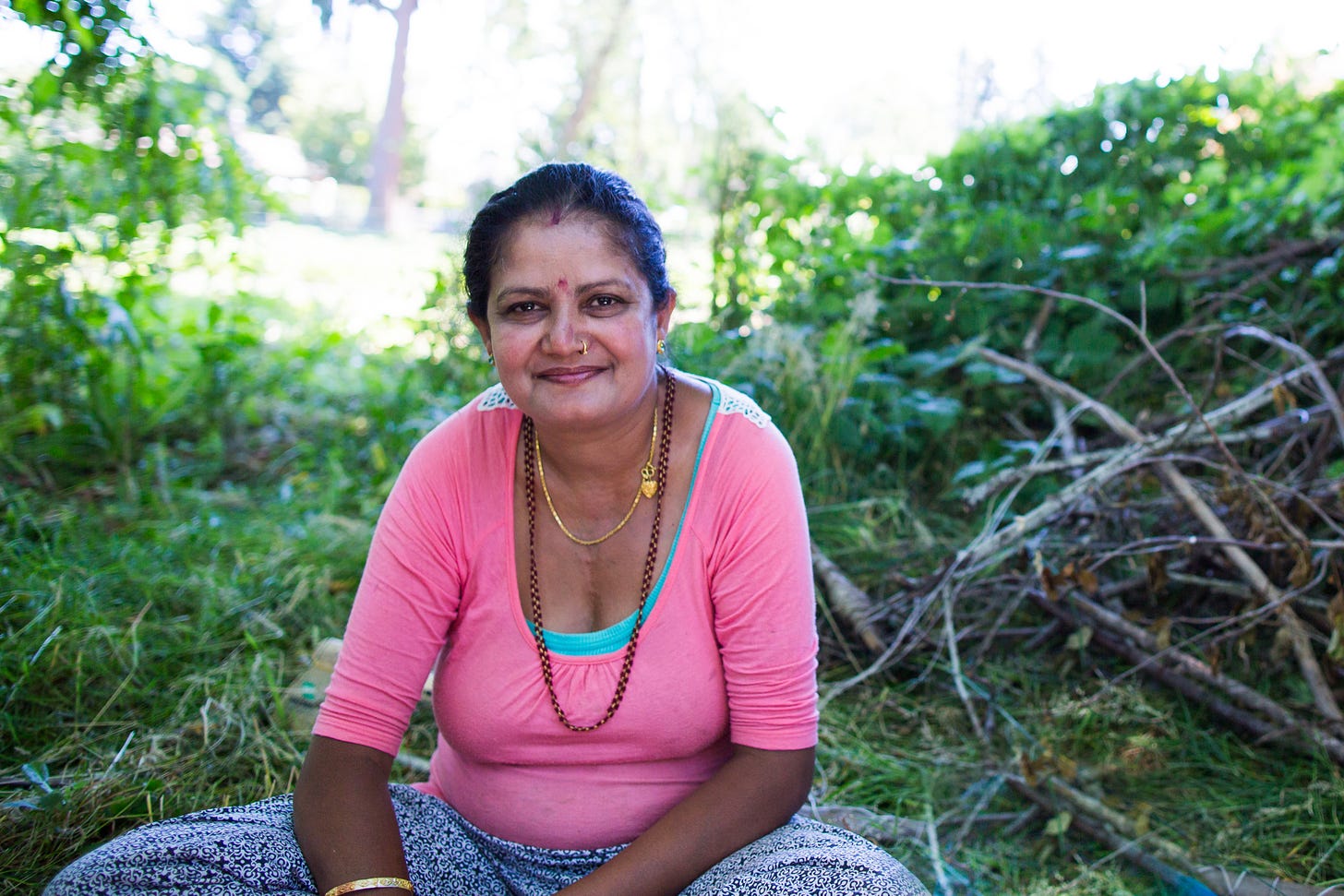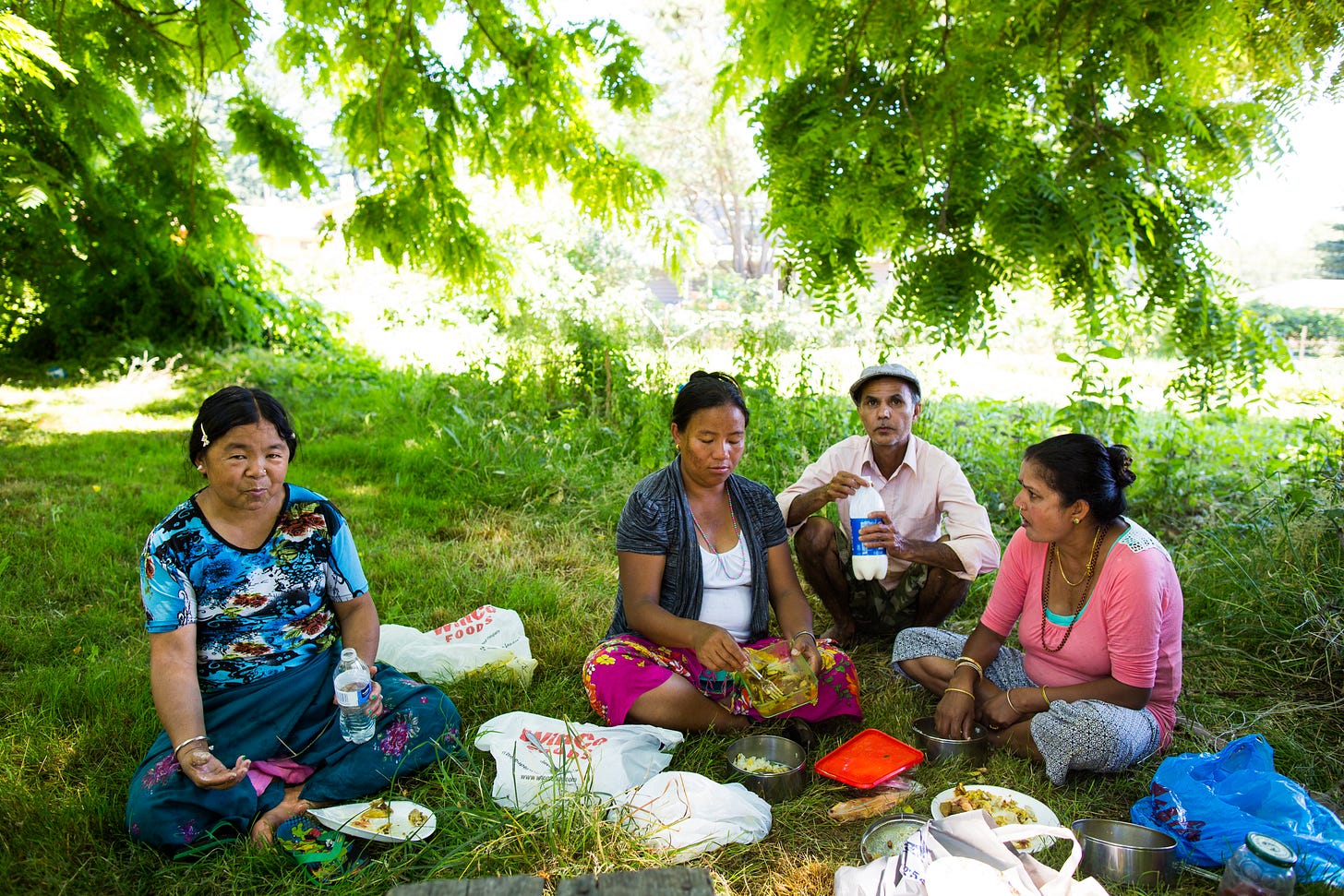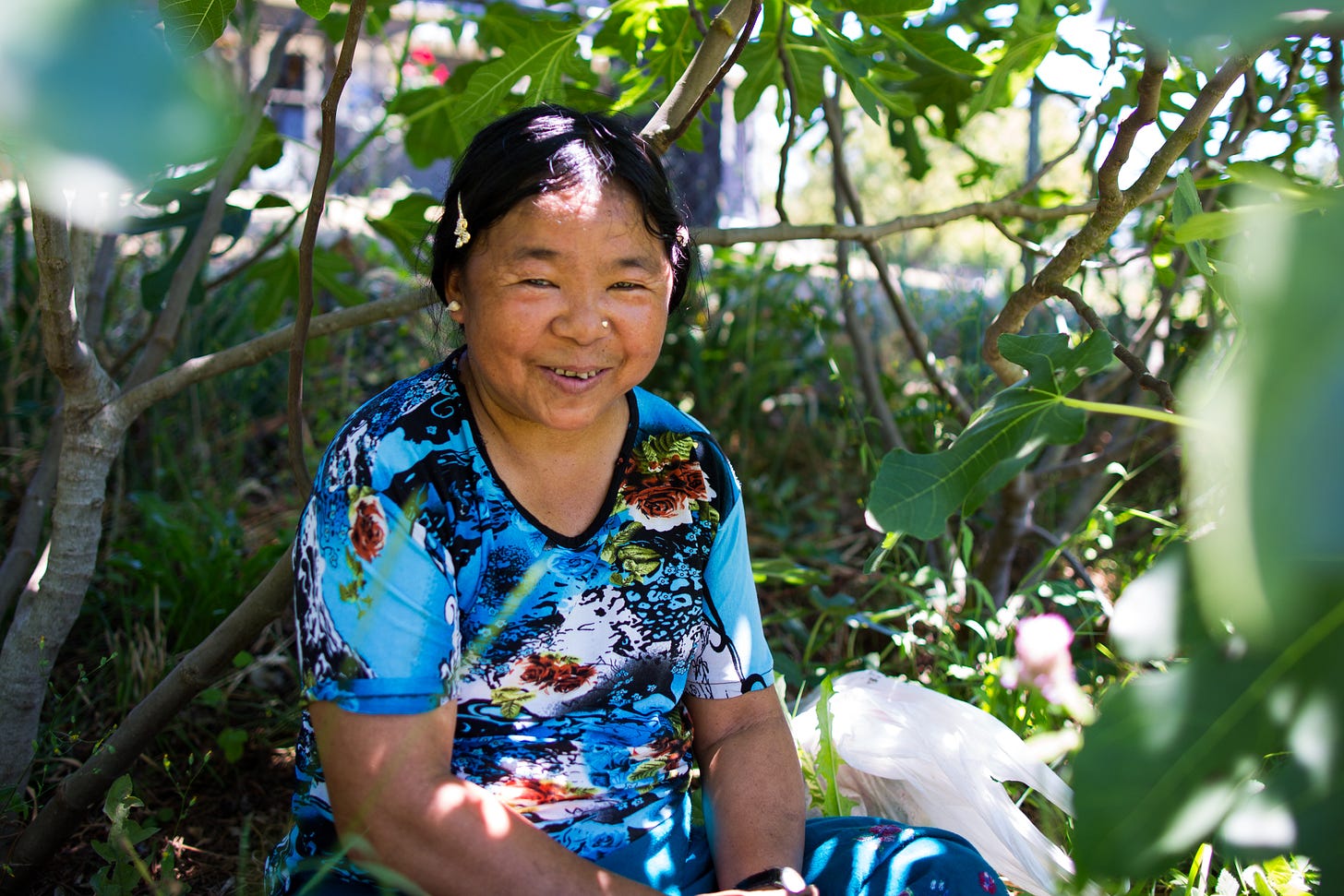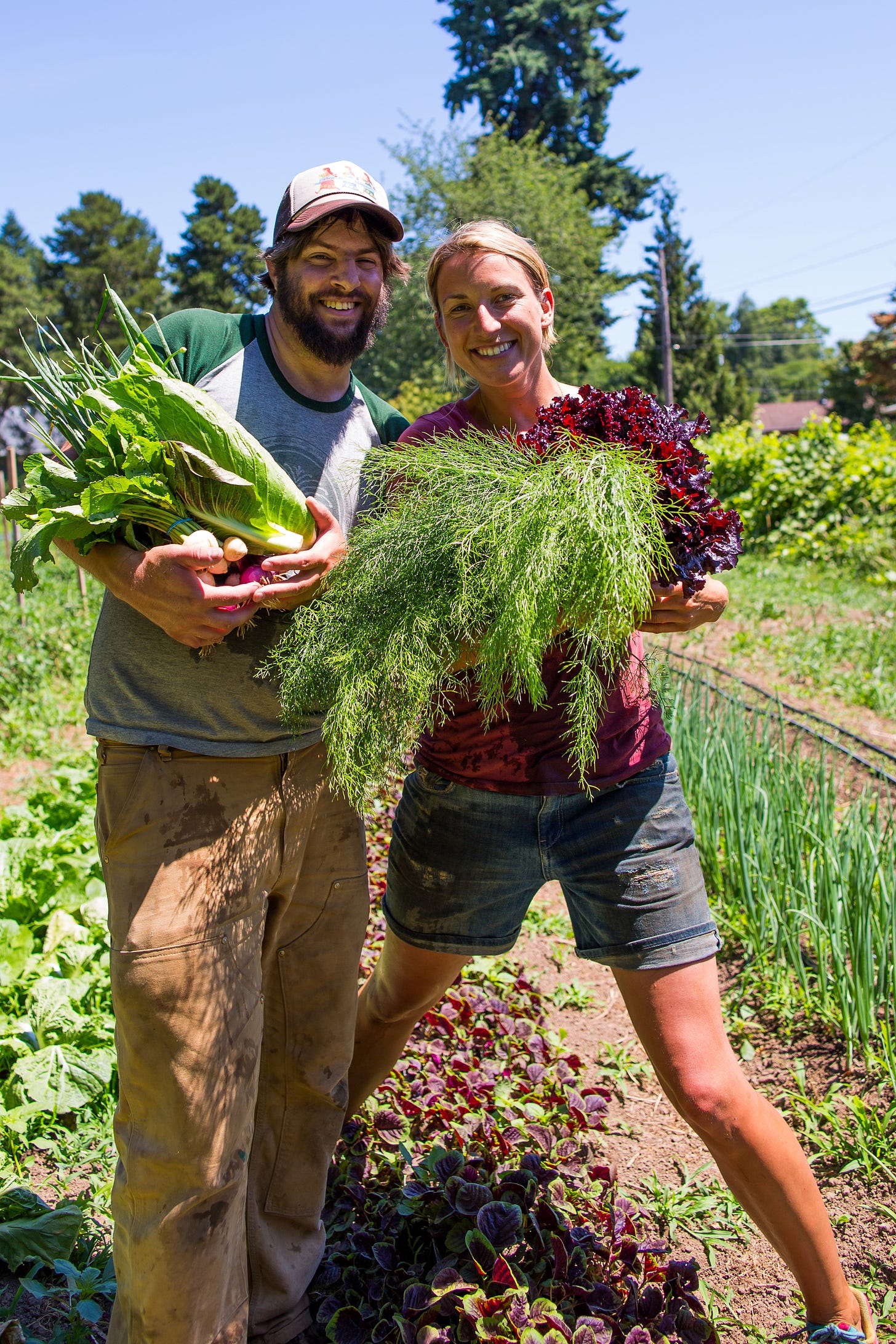A look back to my 2015 visit to Refuge Gardens in Portland, OR
Guman’s journey to a small patch of land in Southeast Portland is one of resilience and survival. His story begins on a subsistence farm in the Southwestern Bhutan Samste region, where he was born in 1969 to an ethnic Nepali family.
Born in 1969, he was one of six children raised by his father after his mother passed away during his early childhood. By the age of ten, Guman had already begun working outside the home in domestic roles to support his family. Later, he found work on a Bhutanese government-run poultry farm.
In his mid-twenties, Guman married Jumuna, and their life together should have marked the beginning of something new. Instead, ethnic tensions in Bhutan forced the Nepali minority, including the Bharatis, to flee their homeland. They resettled in the Beldangi 2 refugee camp in Eastern Nepal, where they lived in uncertainty for years.
In the spring of 2009, after years of displacement, Guman and his family were granted refugee status in the U.S. They resettled in Portland, Oregon, and like so many refugees, Guman faced the immense challenge of starting over in a foreign country. But it was through Mercy Corps’ Refuge Gardens program that Guman began to rebuild his life. The program offered him not just land and supplies, but a connection back to the soil and the work he had known for so long. Farming became more than a livelihood—it became a source of healing.
Today, Guman is not only growing food for his family but also building a new future. He supplements his income from the garden with janitorial work, giving his children the opportunity to pursue their education. For Guman, fresh produce and extra income are important, but it’s the chance to work the land with his family that has truly helped him adjust to life in the United States. Through the Refuge Gardens, he has found a way to plant roots once again.
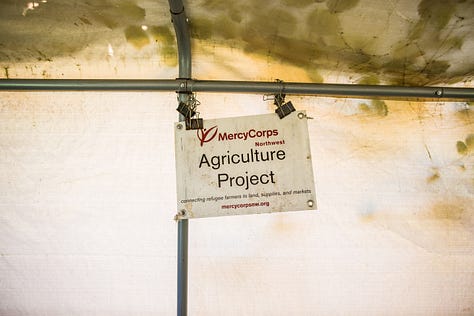


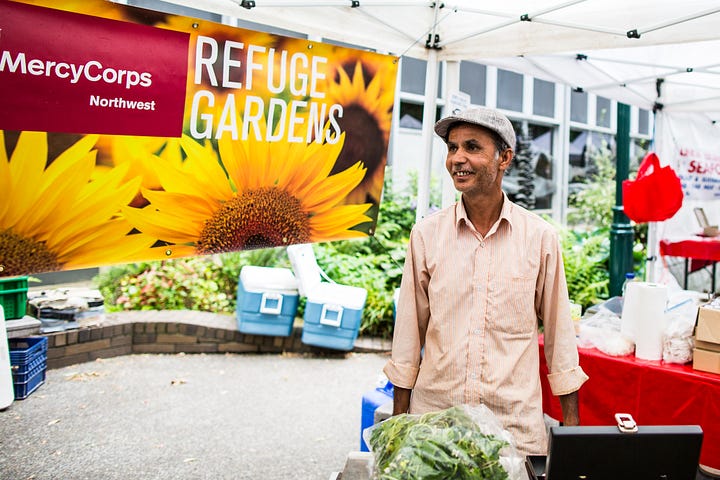

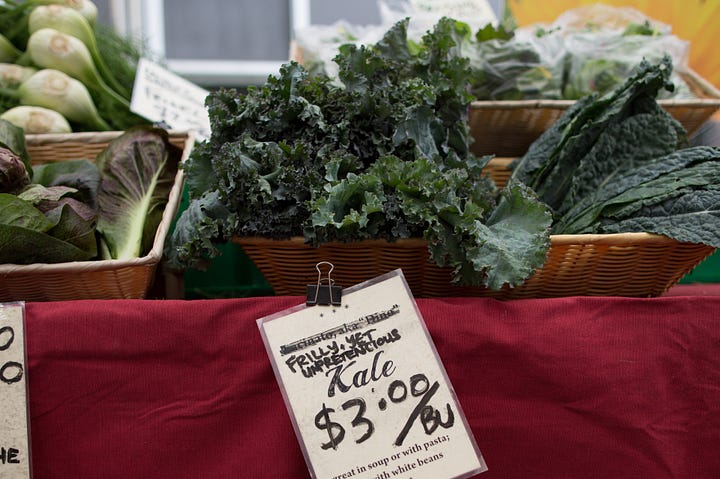
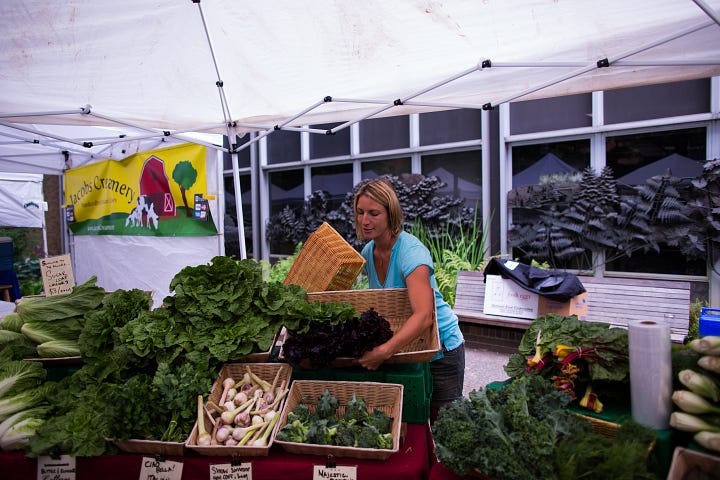
To learn more and support Mercy Corps work: mercycorpsnw.org





